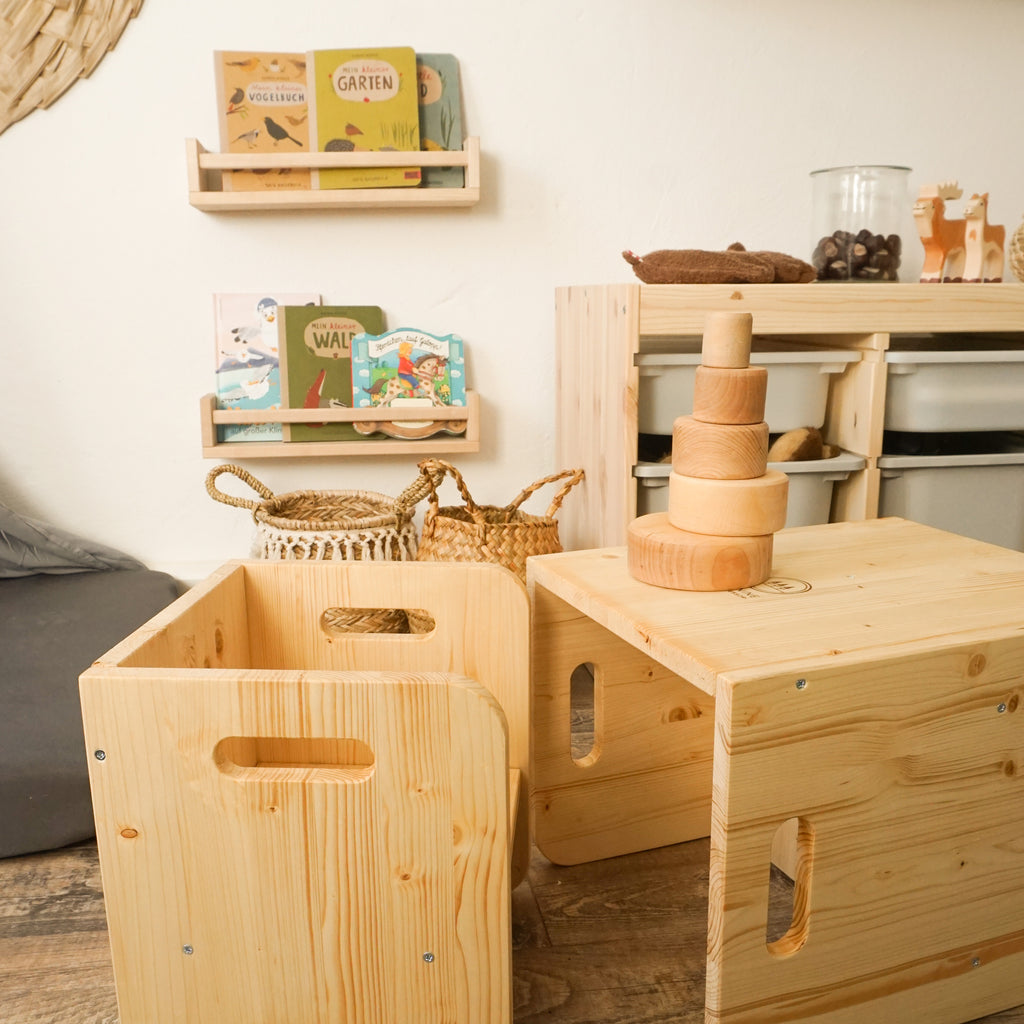Infant Program

Our infant program, is committed to promoting quality Montessori infant care for children from six weeks to eighteen months, based on these key American Montessori Society concepts:
- The aim of Montessori infant programs is to foster the development of basic trust and to assist in the normal development of the personality.
- Basic trust develops in an environment where people respond appropriately to the infant’s communication of needs to be loved, respected, and accepted.
- Infants learn through their senses. They learn by watching and moving freely. Freedom to move is essential to the development of the infant’s potential.
- The infant is considered as a whole person and is affected by the quality of holding and feeding, as well as the quality of physical care.
- Learning, which leads to independence, occurs when infants participate in their daily routines of care.
- Infants must be spoken to in the language with which they will communicate.
The Montessori infant specialist is educated in these areas:
- Self-knowledge as preparation
- Human growth and development
- Observational skills to assist the development of each child
- Preparing responsive environments to meet the infant’s developmental needs
- Respecting daily routines and incorporating them into the infant’s curriculum
- Both verbal and non-verbal communication skills
- Respecting the infant as a person.
- Respecting the environment as a resource for the infant’s development
- Taking responsibility to assist and protect the infant’s development
- Nurturing infants
A Montessori infant environment must have these basic characteristics:
- Adults educated in the Montessori philosophy and methodology appropriate for infants.
- A partnership established with the family. The family is considers an integral part of the individual’s total development.
- A variety of interesting objects– to look at, explore, and experience– which are designed to meet the developmental stages and sensitive periods of infants.
- A flexible sequence of routines and activities that reinforce the rhythmic patterns of activities of individual infants– not a rigid schedule.
- An atmosphere that communicates unconditional love and acceptance.